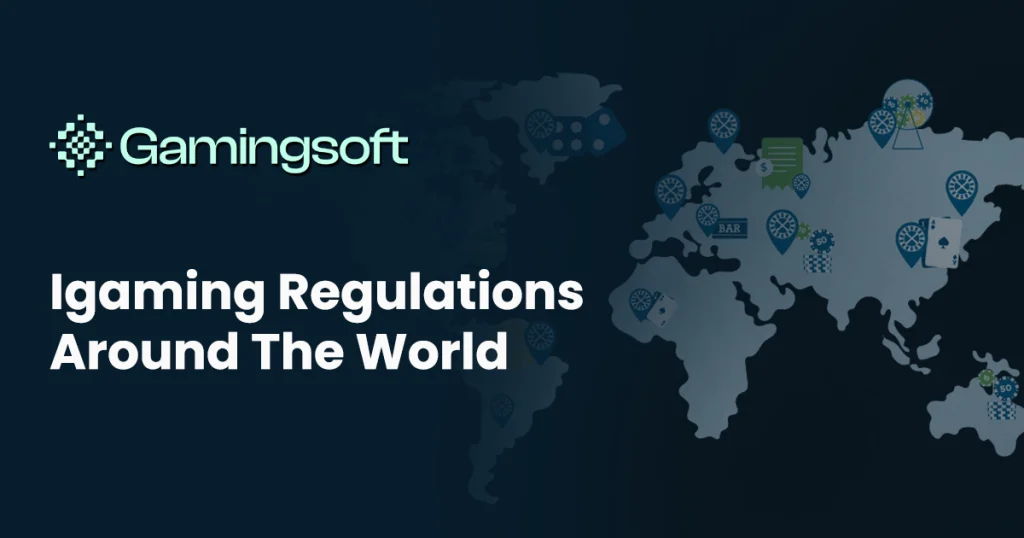The iGaming industry has experienced explosive growth over the last decade, transforming from a niche vertical into a multibillion-dollar global market. In 2025, this growth continues, but it comes with a major challenge: regulation. Each country—and often each region within a country—handles iGaming differently, creating a patchwork of rules that operators must navigate.
Understanding these regulations isn’t just a compliance requirement. It’s a competitive advantage. Operators who stay ahead of the legal curve can expand faster, avoid costly penalties, and build stronger trust with players. In this in-depth guide, we’ll explore the iGaming regulations around the world in 2025, examine how different regions approach online gambling, and identify the global trends shaping the industry’s future.
In this article, we explore the latest iGaming regulations in key markets, covering licensing updates, tax changes, and emerging trends shaping the industry in Europe, North America, Latin America, Asia, and Africa.
Why iGaming Regulations Matter in 2025
iGaming is inherently cross-border. A single operator may serve players from Europe, Latin America, and Asia all at once. Without strong regulatory frameworks, issues such as fraud, problem gambling, and tax evasion can quickly spiral. That’s why countries are tightening rules in 2025, balancing consumer protection with opportunities for economic growth.
For operators, failing to comply can mean revoked licenses, blacklisting, or permanent bans from lucrative markets. But with the right strategy, regulations also bring stability, attracting serious investors and long-term customers.
For a baseline on global legality, check our article on where online gambling is legal in 2024.
Europe: Structured and Highly Competitive
Europe remains one of the most heavily regulated regions for iGaming. The United Kingdom continues to lead with the UK Gambling Commission enforcing strict standards on fairness, responsible gambling, and advertising. Meanwhile, Malta—long considered the hub of iGaming licensing—has updated its framework to improve AML (anti-money laundering) compliance.
Countries like Sweden and Spain impose strong tax rates and rigid licensing rules, but they remain attractive because of high player trust. At the same time, Germany has faced criticism for burdensome restrictions that drive some players to unlicensed platforms.
For a deeper breakdown, see our guide on the 2025 legal gambling markets in Europe.
Latin America: Emerging Powerhouse
Latin America is one of the fastest-growing iGaming regions in 2025. Brazil has taken center stage, rolling out new regulations that allow licensed operators to serve both casino and sports betting markets. Colombia remains the pioneer of Latin iGaming, with its regulator Coljuegos setting an example for the region.
Other countries like Mexico, Argentina, and Peru are developing or refining frameworks, though consistency across states and provinces remains a challenge. For operators, Latin America offers huge potential—but success requires navigating fragmented rules and sometimes unclear enforcement.
For a closer look, explore our insights on navigating the Latin American iGaming landscape.
North America: Still in Transition
In the United States, online gambling remains regulated at the state level. States like New Jersey, Pennsylvania, and Michigan continue to thrive, while others such as New York are expanding into iGaming beyond sports betting. Canada, meanwhile, has allowed Ontario to emerge as a leading regulated hub.
The challenge here is fragmentation. Each state or province has different rules, tax rates, and licensing costs, making expansion complex and resource-intensive.
Southeast Asia: Opportunity with High Risk
Southeast Asia is a patchwork of strict prohibitions and gradual openings. The Philippines remains the region’s most established market through PAGCOR licenses, which attract operators seeking regional presence. Other countries like Vietnam and Thailand are cautiously testing regulated models, primarily tied to tourism.
Yet, many markets—including Indonesia and Malaysia—retain strict bans, driving much of the activity underground. For operators, SEA is high-risk but offers long-term opportunities as governments look for new tax revenue streams.
For a country-by-country breakdown, see our report on 2025 legal gambling markets in Southeast Asia.
South Asia: Early-Stage Discussions
In Pakistan, policymakers are exploring frameworks that could eventually allow regulated online gambling, though cultural and religious barriers remain significant. Early debates focus on taxation and consumer protection.
Meanwhile, Sri Lanka is examining regulation as a tool to boost tourism and attract foreign investment. The government is weighing whether to license casinos more openly, including digital platforms.
For updates, read our coverage on gambling regulation in Pakistan and gambling regulation in Sri Lanka.
Africa: Slowly Opening
Africa’s iGaming market is still developing. South Africa maintains one of the continent’s most advanced regulatory systems, but enforcement remains challenging. Nigeria, Kenya, and Ghana are seeing rapid growth in sports betting, though comprehensive regulation for online casinos is still catching up.
The potential is enormous, but operators face hurdles in payments, infrastructure, and compliance.
Middle East: Conservative but Watching
Most Middle Eastern countries maintain strict bans on iGaming, particularly in Saudi Arabia and UAE. However, there are signs of change as tourism-driven economies like Dubai explore controlled frameworks. These markets remain highly sensitive, and operators should tread carefully.
Global Trends in iGaming Regulations
Across all regions, several themes dominate the regulatory conversation in 2025:
- Responsible Gambling Mandates – More countries now require tools such as deposit limits, self-exclusion, and real-time monitoring to protect vulnerable players.
- Digital KYC and AML Compliance – Governments push for AI-driven verification systems to fight fraud and money laundering.
- Crypto and Digital Payments – Regulators are cautiously opening up to cryptocurrencies, though most apply strict oversight.
- Cross-Border Collaboration – International regulators are beginning to share data to stop illegal operators.
- Taxation Increases – Mature markets impose higher taxes, while emerging markets offer favorable rates to attract operators.
What It Means for Operators
For iGaming operators, the message is clear: regulation is no longer a barrier, but a business strategy. Entering a regulated market may cost more upfront, but it offers long-term sustainability. By aligning with global compliance standards, you reduce risk and strengthen your brand credibility.
The choice is not whether to comply, but where and how to expand. Success in 2025 comes from choosing markets wisely, partnering with licensed providers, and staying informed on fast-changing rules.
Final Thoughts: Navigating iGaming Compliance in 2025
As regulations continue to evolve, iGaming operators must stay ahead of compliance requirements while adapting to new licensing models, taxation frameworks, and responsible gambling policies.
At GamingSoft, we help operators navigate these complex regulatory landscapes with turnkey white-label solutions, API aggregation, secure payment systems, and compliance-ready gaming platforms.
About GamingSoft
GamingSoft is a leading provider of online casino solutions, offering a comprehensive suite of services, including a white-label solution, API integration, payment solutions, game development, and more, to iGaming operators worldwide. With over years of experience, GamingSoft has earned a reputation for delivering innovative and reliable solutions, helping clients succeed in the competitive iGaming industry. For more information, please visit www.gamingsoft.com or contact [email protected].





